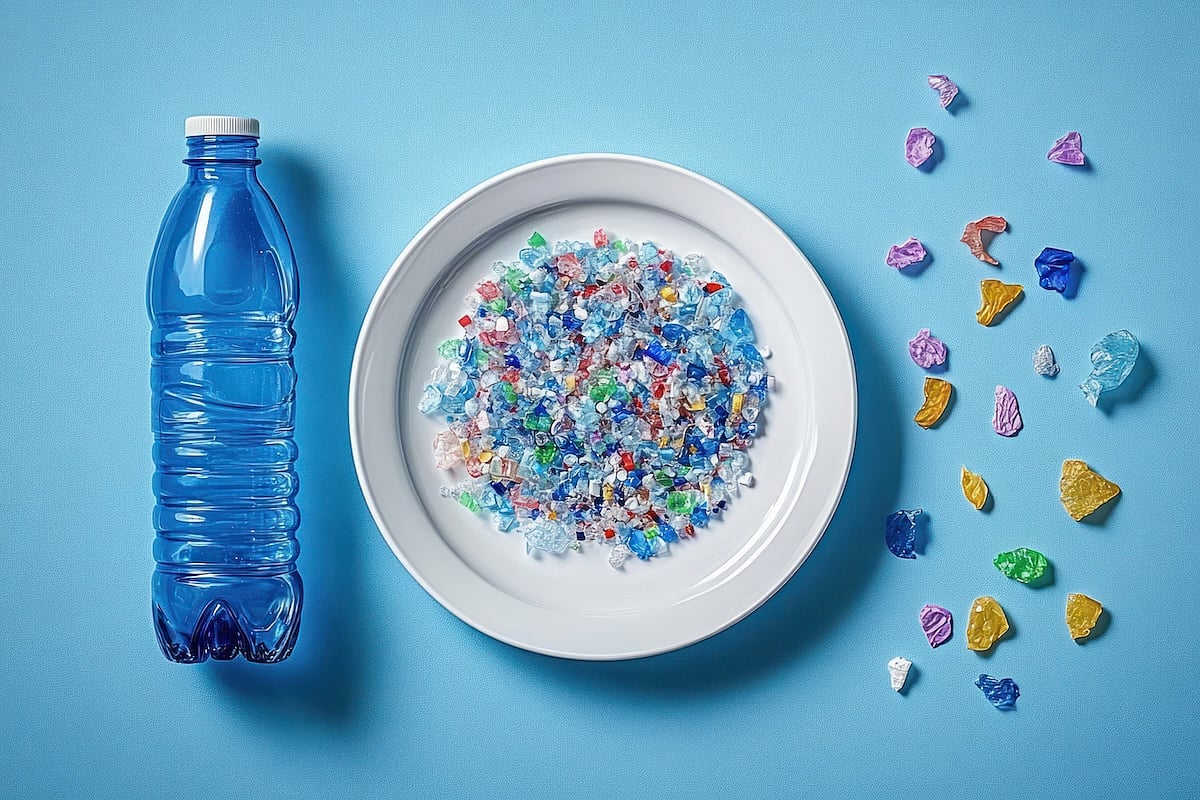We are closed on New Year’s Day, Memorial Day, July 4th, Labor Day, Thanksgiving, and Christmas Day.
Get Healthy!

- I. Edwards
- Posted June 27, 2025
Everyday Packaging May Shed Tiny Plastics Into Your Food, Study Finds
Opening a bottle or unwrapping a piece of deli meat could be adding tiny plastic particles to your food, new research reveals.
Microplastics and nanoplastics can enter food during packaging, processing and even normal use, like twisting a bottle cap or tearing off a plastic wrapper, according to a study published June 25 in NPJ Science of Food.
“This is the first systematic evidence of how normal and intended use of foodstuffs packaged in plastics can be contaminated with micro- and nanoplastics,” said lead author Lisa Zimmermann, a scientific communication officer at the Food Packaging Forum in Zurich.
Researchers reviewed more than 100 studies and found plastic particles in common foods such as rice, canned fish, sodas, bottled water and takeout containers, CNN reported.
For example, one study found an average of 240,000 plastic particles in a single liter of bottled water.
Microplastics are very small pieces of plastic, often less than 5 millimeters wide — about the size of a sesame seed. Nanoplastics are even smaller and measured in billionths of a meter.
They’re so tiny they can travel through your lungs or digestive tract and into your bloodstream, carrying potentially harmful chemicals into your body and cells.
Another study found that washing a plastic bowl repeatedly caused more plastic to break off and enter food.
"Researchers washed a melamine bowl 10 times, 20 times, 50 times, 100 times and measured the amount of microplastic it released each time,” Zimmermann said. “Then they put something in the bowl and tested it and found more microplastic release after increased washing.”
Even glass jars may not be safe if the lids are lined with plastic. Repeated opening and closing can lead to tiny plastic particles getting into the food or drink, CNN reported.
Recent studies have found these minute plastics in human brain tissue, the testes and the penis, human blood, lung and liver tissues, urine and feces and even in breast milk and the placenta, CNN reported.
A March 2024 study published in The New England Journal of Medicine found that people with plastic particles in their arteries were twice as likely to have a heart attack, stroke or die early compared to those without them.
Research also found that ultraprocessed foods often contain more microplastics than fresh or minimally processed foods.
“There’s a higher number of manufacturing steps with ultraprocessed foods, which can increase the contact time with plastic food processing equipment, thus increasing the chance of micro- and nanoplastic migration” said senior author Jane Muncke, managing director of the Food Packaging Forum.
Heating plastic, reusing it or exposing it to sunlight and pressure (like squeezing a bottle) can also release microplastics.
Megan Deeney, a research fellow at the London School of Hygiene & Tropical Medicine, reviewed the findings.
“This is a rigorous, detailed and critical study that applies robust systematic methods to review the existing literature on microplastics and food contact materials,” she told CNN.
“What is particularly important is that the authors take the time to extract and evaluate evidence on whether the presence of microplastics changed over time in these studies," Deeney added. "This can help to identify the food contact material itself as a direct source of food contamination by microplastics."
Experts say there are some ways to cut back on microplastic exposure, however.
“One is to reduce our plastic footprint by using stainless steel and glass containers, when possible,” Dr. Leonardo Trasande, director of environmental pediatrics at NYU Langone Health, told CNN.
“Avoid microwaving food or beverages in plastic, including infant formula and pumped human milk, and don’t put plastic in the dishwasher, because the heat can cause chemicals to leach out,” Trasande added.
Additionally, check the recycling code on the bottom of food packaging to find the plastic type, and avoid plastics with recycling code 3, which can contain phthalates, he added.
Bringing reusable bags to the store, skipping plastic utensils and asking dry cleaners to use fabric garment bags instead of the plastic ones can also help.
“This is not something that any individual can solve on their own,” Deeney said.
“We need systemic action to reduce plastics production and pollution,” she added.
More information
The U.S. Food and Drug Administration has more on microplastics and nanoplastics in foods.
SOURCE: CNN, June 24, 2025





